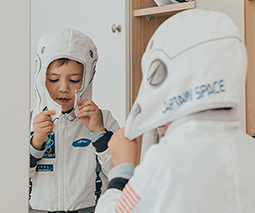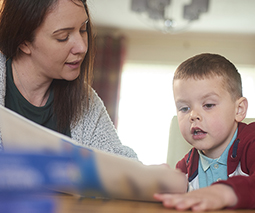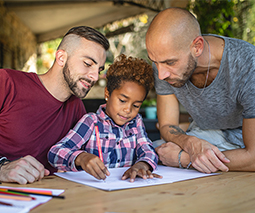8 ways to encourage your big school kid to be more independent
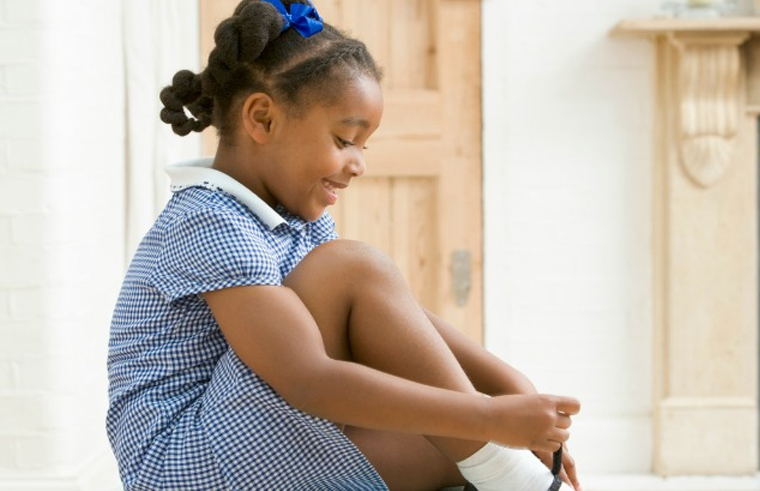
When your babies reach school age it’s a huge milestone. They seem so grown up! Or perhaps they don’t seem quite grown up enough? Often the transition is a lot more challenging for you both than you realise. Encouraging your child to be more independent can make things easier and is really important in the long run.
Avoiding learned helplessness
We get it, you’ve only got 10 minutes to get out the door and your child is still in their pyjamas chasing the cat outside. So you throw their clothes on for them and shove a toothbrush in their mouth while piling their lunch and other stuff into their school bag so you can make it before the bell rings. Phew!
Not only is this incredibly stressful but it’s actually teaching kids not to help themselves. ‘Learned helplessness’ is a term used to describe someone who believes they have no control over a situation or can’t do something for themselves, and so they give up trying.
In relation to children, it basically means that if you’re always doing things for them it’s a lot harder for them to take the reins themselves. Which is what you need to make things run a bit smoother at home and help give them more confidence, capability and ownership at school. After all, do you really want to still be putting on your kid’s shoes for them in high school? The answer is no!
Here are a few ways we can encourage independence in our nearly-school-aged kiddos.
1. Communicate the change
You can’t expect children who have everything done for them to suddenly be making their own lunch, finding their shoes and combing their hair without being asked. You’ll need to sit down and explain to your child that because they’re now a big boy or girl who goes to school, you’ve realised there are things they can do themselves and you’re ready to pass the baton.
Giving them warning about the change, making it seem exciting, talking about how it’s going to happen and answering any questions they might have is the first step to helping them feel comfortable and keen about taking on their new role.
2. Identify the tasks
Create a list of agreed-upon daily tasks with your child. For example, it might include getting themselves dressed each morning, make and clear away their own breakfast, feed the dog, brush their teeth and hair, and pack their school bag.
Be realistic in what you choose and don’t forget to include general activities or tasks outside of the school day too, such as cleaning up a mess if they spill something, or watering the plants on a Saturday.
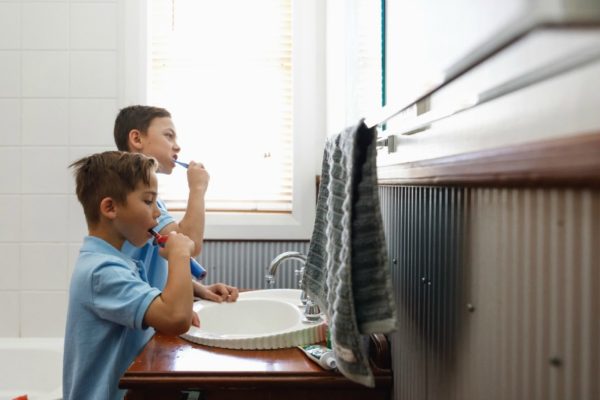
3. Create a routine
Once you have your list of tasks that you both agree on, put them into a weekly schedule or routine of some sort so it becomes ‘the norm’ and so they don’t forget.
For younger kids, an egg timer can be super handy to keep them on track in a timeframe that works for the family.
4. Make jobs achievable
If your child is supposed to dress themselves but their clothes are in a top drawer they can’t reach, or in a jumbled basket of clean washing, then it’s going to make things a lot trickier and more frustrating for them. So once the tasks are set, ensure that each one can be achieved easily by them with minimum involvement from you.
For example, place cleaning products and clothes in accessible areas and have a small stool handy for helping reach the sink or kitchen cupboards.
5. Take it slow
Don’t place too much pressure on your child to do all tasks independently straight away. Start with one or two and work your way up to the rest.
The transition might take a while and you don’t want to overwhelm them with too much or have them feel discouraged if they can’t do something right the first time. Wait until they’ve mastered one activity before moving on to the next so they feel comfortable and confident.

6. Compromise
If your child is particularly stubborn and taking a while to get the hang of this independence thing, try compromising. For example, if they refuse to put on their shoes try sharing the task – so you’ll put one on if they do the other. After a while, you’ll be able to move up to them doing both.
7. Let go of control
Young children are never going to do things as ‘perfectly’ as you’d like them to, especially when they’re starting out. Accept that they’ll make mistakes and relax when they do. The fact that they’re trying to do a task is the main thing, and in time they’ll get better at it. Don’t be tempted to jump in and do it for them just to save time (or a gigantic mess!).
8. Praise and be patient
Children thrive off praise so be sure to acknowledge what a good job they’ve done whenever they attempt a task, even if they don’t manage to complete it without your help. But be careful of over-praising for every little thing, which can exacerbate the learned helplessness situation. A simple “Good job, sweetie” is plenty to encourage them and acknowledge their efforts.
Patience and kindness go a long way in helping promote good behaviour and independence, as opposed to yelling at them to do something. Remember, they are still little after all!
 Need some support to be the best parent you can be? Our Parent School parent coaching experts can help. Click to find out more or book a one-on-one session.
Need some support to be the best parent you can be? Our Parent School parent coaching experts can help. Click to find out more or book a one-on-one session.




